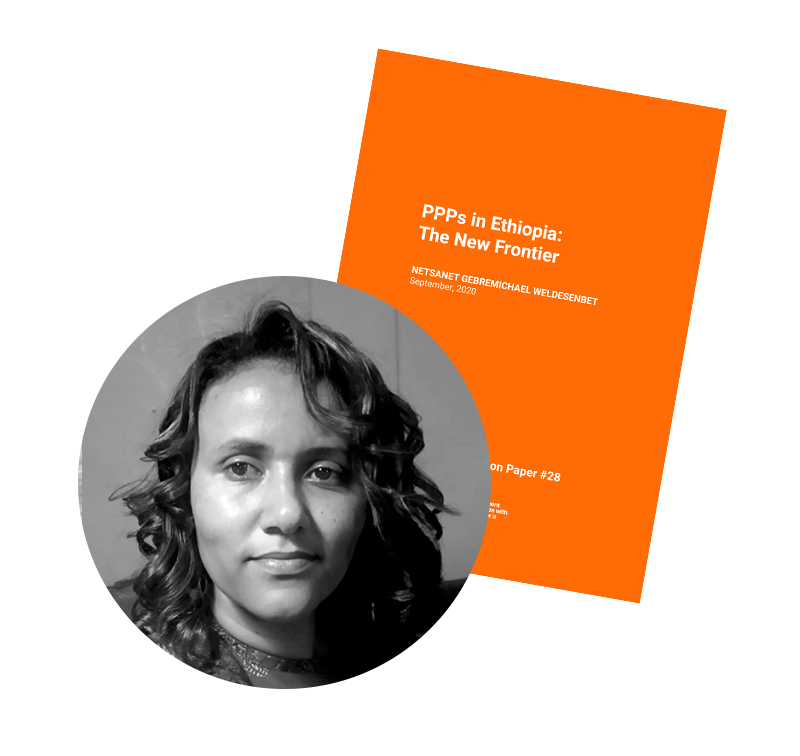State developmentalism is the norm, not the exception, in Ethiopia. The transition from the “developmental state” to the functioning of market-led liberalisation through the development of the Public-Private Partnerships model (PPPs) has led to the previously hegemonic state no longer determining national development, but being relegated to the role of assuming a regulatory function. Thus, it has created a space for inviting international multinational corporations, and foreign and local private sectors to play a central role in the financing of national infrastructural development. PPPs model has been used to privatise – partially or totally – public enterprises in Ethiopia.
Bright Sky
The film tells the story of Berhane and her family, who live in rural Ethiopia, where the government has adopted a Public-Private Partnerships model to improve the severe electricity access gap.
But what happens when they can’t pay the bill?
At first sight, having access to an electricity supply should mean a gateway to progress, especially in rural communities. Still, there is more than being able to turn the lights on. For example, studies have shown that poor women and families may not be able to pay for electricity or even a stove, so they have to continue collecting wood to cook. Having lights at night may only extend the work day for women and enable boys to study more, but not girls given the burden of household chores they must do (Wiese, 2020).
Energy justice inevitably intersects with gender. Women and vulnerable members must have a seat at the table when discussing the public projects that will affect their communities.
What a paradox isn’t it? Ethiopia is one of the few countries in the world powered almost entirely by renewable energy sources. The government has focused primarily on infrastructural development, especially through the construction of hydroelectric dams. However, only a small minority of the population is connected to the electricity grid, mostly in urban areas. The government has promoted alternative sources of renewable energy, such as solar, wind and geothermal. This is being done through active participation by the private sector using PPP mechanisms with plans to develop a portfolio of 71 power projects over the next decade at the cost of US$50 billion.
Remember when all these big companies came here promising to change our lives, and where are we now?

Although PPPs are seen as an opportunity to minimise or reduce Ethiopia’s external debt, the public interest is not yet adequately considered. There is no move toward a systemic and democratic inclusion to protect the public from the profit-led market relations which now dominate the public service sector.
The Podcast
In the episode “The Case of Ethiopia,” feminist scholars Masaya Llavaneras Blanco (Venezuela), Netsanet Gebremichael (Ethiopia), and Sue Godt (South Africa) exchange views on the consequences of the Ethiopian model of Public-Private Partnership that led to the privatisation of the national electricity system, the subsequent increase in public indebtedness and the enormous gap in access to electricity in this African country.’’
Connect The Dots
This chapter describes and analyzes Ethiopia’s engagement with the introduction and interpretation of PPPs model of development financing in the context of politics of transition from the ideological orientation of the Developmental State to an exercise of Market-led liberalization between April 2018 and mid May 2020. This chapter particularly highlights the necessity to account for a gendered political- economic dynamics of ideology-structure nexus that led to the normalization of PPPs as a development finance model. The chapter illustrates how the Ethiopian PPP model of development financing shifted the role of the state so that it plays a regulatory function. Thus it created space for international multinational corporations, foreign and local private sector to play central role for financing national infrastructural development.
The chapter illuminates that one of the ways in which the policy significance of this shift is exhibited in the Ethiopian context through total and partial privatization of Public Enterprises in form of the PPPs model. Such shift in political economy neglects the political significance of displacing the public ownership of Public enterprises. The shift from public ownership of Public enterprises to Public-Private actors needs to account for the substantive political change of what constitutes the public in the Public enterprises model where the state had a hegemonic role in the economy, to the nature of the public in PPPs. This chapter particularly accounts for the ways in which PPPs are discussed in relation to the Energy Sector from April 2018 to May 2020. The paper utilized newspaper coverage of the PPPs in Ethiopian Newspapers, expert’s public debates and dialogues, and official archives of PPPs in the Energy Sector using a feminist political-economy lens. In so doing media narratives and other sources are utilized to show how PPPs are being promoted merely as economic vehicle for growth without necessarily accounting for the political significance of this shift in terms of public accountability. This chapter examines the shifting political dynamics by looking into the politics of PPPs drawing from media narratives, expert opinions, and historical analysis.

Read now PPPs in Ethiopia: The New Frontier by Netsanet Gebremichael Weldesenbet!
